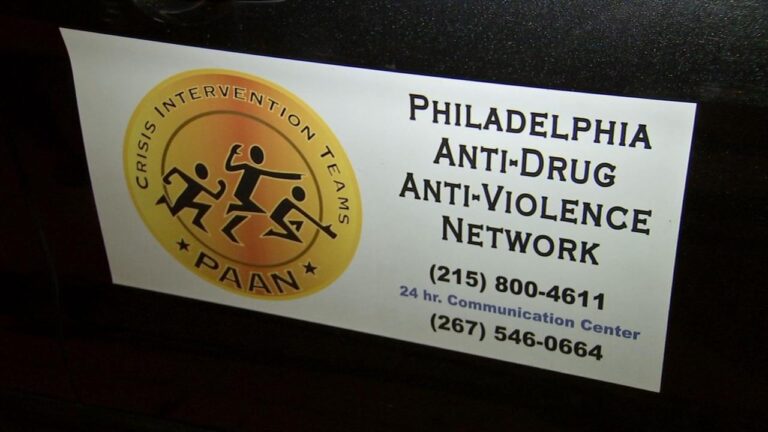Philadelphia’s Holistic Approach to Healing and Preventing Gun Violence
Following yet another tragic shooting in Philadelphia, the city’s Anti-Drug/Anti-Violence Network has ramped up its commitment—not only addressing the immediate aftermath but also tending to the deep emotional wounds within the community. While police and emergency teams manage the physical consequences, this grassroots organization dedicates itself to the vital, often overlooked work of emotional recovery and violence prevention. Their efforts highlight a crucial reality: overcoming the impact of gun violence requires ongoing empathy, support, and resilience-building to break the persistent cycles of trauma and grief.
Comprehensive Trauma Support for Survivors
In the turbulent moments following gun-related incidents, the journey toward emotional healing begins with organizations like the Philadelphia Anti-Drug/Anti-Violence Network. Their approach combines immediate crisis intervention with long-term care, ensuring survivors receive continuous assistance rather than facing trauma in isolation. This includes professional counseling, peer-led support groups, and proactive community engagement designed to restore trust and foster resilience in neighborhoods deeply affected by violence.
Core services offered encompass:
- 24/7 Crisis Counseling: Around-the-clock access to mental health professionals trained to manage acute trauma reactions.
- Confidential Safe Spaces: Secure environments where survivors can openly share their experiences without fear of stigma.
- Ongoing Follow-Up: Regular emotional health check-ins and resource referrals to support long-term recovery.
- Educational Workshops: Community sessions focused on trauma awareness and practical healing strategies.
| Service | Availability | Purpose |
|---|---|---|
| 24/7 Crisis Hotline | Always Open | Immediate emotional assistance |
| Peer Support Groups | Weekly Meetings | Community-based healing |
| Therapeutic Sessions | Scheduled Appointments | Individual and family therapy |
Rebuilding Community Trust Through Outreach and Engagement
In response to escalating violence, the Philadelphia Anti-Drug/Anti-Violence Network has intensified its grassroots outreach, focusing on mending fractured community relationships. Their strategy prioritizes active dialogue and inclusive participation, creating platforms where residents can express grief, voice concerns, and collaborate on solutions. Initiatives include neighborhood forums and trauma-informed workshops tailored to support families and young people grappling with the emotional consequences of gun violence.
Empowering community members remains central to their mission, especially in neighborhoods where trust has been eroded by repeated incidents. Key program components include:
- Mentorship Programs: Pairing vulnerable youth with positive role models to inspire constructive life choices.
- Conflict Resolution Training: Workshops led by local leaders to equip residents with skills to peacefully manage disputes.
- School Partnerships: Collaborations with educational institutions to provide counseling and violence prevention education.
- Rapid Crisis Response Teams: On-call groups ready to intervene when tensions rise, offering immediate support.
| Outreach Area | Intended Impact | Community Participation |
|---|---|---|
| Trauma Counseling | Lower incidence of PTSD | Over 50 trained volunteers |
| Youth Mentorship | Decrease youth-involved violence | More than 100 active mentees |
| Conflict Mediation | Reduce neighborhood disputes | 30+ local councils engaged |
Synergizing Law Enforcement and Community Initiatives
Philadelphia’s law enforcement agencies have increasingly collaborated with anti-violence organizations to develop a comprehensive response to gun-related incidents. This partnership transcends traditional crime-fighting, emphasizing both prevention and healing. Police officers coordinate closely with outreach workers, sharing timely information and conducting joint neighborhood patrols to foster safety and trust. Such cooperation is essential to addressing the multifaceted aftermath of shootings—both legal and emotional.
Key facets of this joint effort include:
- Coordinated Crisis Response: Deployment of victim advocates and trauma specialists alongside police at shooting scenes.
- Community Healing Gatherings: Jointly organized forums and vigils that encourage open dialogue and reconciliation.
- Secure Data Exchange: Sharing case information to customize support services for victims and their families.
| Entity | Role | Objective |
|---|---|---|
| Police Department | Ensure public safety and conduct investigations | Reduce violence through enforcement |
| Anti-Violence Organizations | Offer emotional support and mentorship | Prevent retaliation and promote community healing |
Policy Recommendations and Sustainable Funding for Long-Term Impact
To break the persistent cycle of violence and drug-related harm in Philadelphia, it is critical to secure dependable and adaptable funding for community organizations like the Anti-Drug/Anti-Violence Network. Policymakers should emphasize multi-year funding commitments rather than short-term grants, recognizing that meaningful change and healing require time and consistency. Furthermore, increased investment in preventative measures—such as education, mental health services, and economic development—is essential to address the systemic factors that perpetuate violence.
Recommended policy reforms include:
- Decriminalization and Diversion: Reducing incarceration for non-violent offenses and redirecting resources toward rehabilitation programs.
- Community-Led Solutions: Empowering individuals with lived experience to design and implement intervention strategies.
- Equitable Resource Allocation: Directing funds to neighborhoods disproportionately impacted by violence to foster sustainable social and economic growth.
| Policy Domain | Suggested Change | Anticipated Result |
|---|---|---|
| Funding Structures | Long-term, flexible grants | Enhanced program stability and effectiveness |
| Criminal Justice Reform | Decriminalize minor offenses | Lower incarceration rates, increased rehabilitation |
| Community Engagement | Leadership roles for impacted residents | Improved trust and program success |
| Resource Distribution | Focused investment in high-need areas | Economic revitalization and violence reduction |
Final Reflections: Building Resilience and Hope
As the immediate shock of gun violence subsides, the Philadelphia Anti-Drug/Anti-Violence Network embarks on the demanding journey of emotional recovery and community restoration. Their work highlights the indispensable need for ongoing support and resources to heal the wounds left by violence. Looking ahead, their dedication will be crucial not only in preventing future tragedies but also in nurturing resilience among those most affected. Though the path is challenging, sustained commitment offers Philadelphia a chance to transform pain into meaningful progress.








